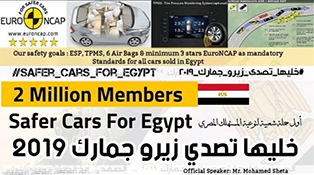FIA
Day 6 of 4th United Nations Global Road Safety Week - How FIA and United Nations team up to Save Lives - #slowdown
Therefore we at Auto Arabia teamed up with the Automobile & Touring Club of Egypt ATCE in order to raise the public and media awareness about this extremely important issue, as our part and contribution to the 4th United Nations Global Road Safety Week and to the efforts of the FIA in improving the road safety situation worldwide.
During this Global Road Safety Week we will see Auto Arabia’s editor-in-chief Mohamed Sheta cooperating closely with the Automobile & Touring Club of Egypt and its Traffic & Tourism Committee. Sheta is not only an influential automotive journalist and well-known jury-member in six internationally-renowned automotive awards with over 25 years of experience in the automotive, motorsport and media sector, but he is also an internationally-acknowledged road safety advocate speaking regularly in fluent German, Arabic, and English at regional and international automotive and road safety conferences.
Sheta will be talking daily here on autoarabia.org and on several radio and TV channels about the most challenging problems and obsta
This extensive media activity is aimed primarily at reaching millions of road users, internet users, TV viewers and radio listeners but at the same time will also reach the political decision-makers and stake-holders.
On each day of this road safety week Mohamed Sheta will tackle a different road safety topic/problem, and explain how to adapt effective solution for those road safety problems based on the current circumstances in Egypt and based on the behavior and understanding of the Egyptian road user.
During the seven days of the 4th UN Global Road Safety week Sheta will talk about the following seven topics:
- 08.05.2017: Risks of speeding for passenger car drivers
- 09.05.2017: Risks of speeding for motorcycle riders
- 10.06.2017: Risks of speeding for microbus, minibus, public transportation bus, tourism bus and taxi drivers
- 11.06.2017: Risks of speeding for Light Commercial Vehicle drivers
- 12.06.2017: Risks of speeding for Heavy Goods Vehicle drivers
- 13.05.2017: The role of the government, the private sector, the NGOs, the public & private schools, the public & private universities and the law enforcement authorities
- 14.05.2017: The importance of the use of modern technology and ITS by the law enforcement and the importance of active and passive safety features in the passenger cars, motorcycles, buses, LCVs and HGV for reducing the braking distances
So today on the 13th of May 2017, the sixth day of the 4th UN Global Road Safety week, Mohamed Sheta will be talking about the role of the government, the private sector, the NGOs, the public & private schools, the public & private universities and the law enforcement authorities in implementing better and more effective wide-spread speed management and road safety campaigns around schools, universities, hospitals and residential areas:
‘The Egyptian government has been trying for years to improve the road safety situation in Egypt. Unfortunately this has not an easy task, especially since many stakeholder and other parties are part of this sophisticated road safety process.
Some of the most important parties involved in this important road safety process are the private sector, the media, the NGOs and the schools and universities.
The members of parliament, the Ministry of Justice, the office of the attorney general and of course the traffic departments must ensure that we have strict, effective and useful traffic laws with a stringent law enforcement in all 27 governorates.
The Ministry of Industry and its Egyptian Organization for Standardization must ensure that ABS, ESP, at least 6 airbags, Tire Pressure Monitoring System and Emergency Braking System become mandatory in all imported and locally-assembled passenger cars and commercial vehicles.
All of the above-mentioned parties MUST work closely together in order to improve the road safety records in Egypt and in order to raise the public and media awareness about this very important topic.
Unfortunately the private sector has not been a very reliable partner in improving road safety in Egypt, nor was it successful in raising road safety awareness as part of its CSR activities.
Almost 90% of all car companies in Egypt assemble or import cars without any active or passive safety features in order to increase their profit margin.
Additionally it is a well-known secret that 90% of the net profit of any car company comes from the service center, while only 10% come from the show-room sales of brand-new cars. And from the 90% profit of most of those service centers, 90% come from the big repairs of accidents which are usually paid by the insurance companies, while only 10% come from the normal oil changes and regular services of the car.
For me this is the main reason and only reasonable explanation why 90% of the car companies in Egypt assemble and import cars without the Electronic Stability Program ESP and without other important safety features, like the Emergency Braking System. Like this the probability of accidents are increased significantly and consequently the revenue of the car dealers increase as well.
It is a shame that the Egyptian media never discusses such issues. The reason behind that is that the three biggest advertising spenders in the automotive sector are those three selling the cars and commercial vehicles with the lowest safety level, namely General Motors Egypt & Mansour Chevrolet, Ghabbour Auto (Hyundai Egypt, Geely Egypt, Mazda Egypt, Bajaj Tok Toks) and Nissan Motors Egypt.
This is surely a big shame for the mainstream media in Egypt, both the privately-owned as well as the state-owned, as it is their duty to raise awareness and save the lives of the Egyptian citizens who at the same time are their very own readers.
As for the NGOs, I stopped attending the workshops and conference which the WHO used to organize for and with the NGOs in Egypt. The reason is that I noticed that most of those so-called ‘NGOs’ working in the Road Safety sector have no clue about road safety and lack the competence, knowledge and experience to work in this sector. Yet they still do it and I believe their work is extremely counterproductive when it comes to convincing potential supporters and partners for supporting road safety campaigns or activities. Those unprofessional and incompetent NGOs simply give a very bad impression and make those potential sponsors and partners stay away from nay road safety projects.
Regarding schools, I believe it is very important that all schools start teaching the kids starting from grade one the basics of road safety and the correct behavior on the streets. I remember when I was in grade two or three at the primary school (Grundschule) in Germany, they used to take us to a traffic school where we learned the basic of correct traffic as a pedestrian or cyclist. I think we need one permanent traffic school for kids in each major city in Egypt, in addition to adding traffic / road safety classes starting from grade two or three.
Same applies for universities, where the students should attend theoretical road safety classes and practical Safety Driving Training. But unfortunately this is not so easy.
I once talked to one of the presidents of one of the leading universities in Egypt for organizing a Safety Driving Training at his campus for the students. I would have never expected his reply. He agreed to hold the theoretical part but refused to hold the practical driving part, which is in my opinion the more important part. And his argument was that he would not allow a practical safety driving training on his campus because of liability reasons, in case anything goes wrong during the training part.
As you can see, there is still a lot of media awareness we must continue to raise in Egypt.’
AA
13.05.2017
Cairo
Related articles:
#SaferCarsForEgypt
 Want to sell your used car or buy one? Then check out our new used car market section
here!
Want to sell your used car or buy one? Then check out our new used car market section
here!
 Looking for a good service center or aftersales customer service? Did you have any bad experience with your car dealer or service center? Then check our 'automotive evaluation charts'
here!
Looking for a good service center or aftersales customer service? Did you have any bad experience with your car dealer or service center? Then check our 'automotive evaluation charts'
here!
Is Egyptian car market corrupt or collapsing?

Is the Egyptian car market collapsing or is it just a corrupt and unprofessional car market?
This is surely one of the most asked questions these days. Everybody is asking ...
AutoArabia Consulting
Middle East Car of the Year
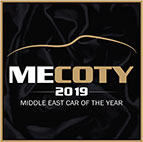
Read more
Crash Test Results

Subscribe



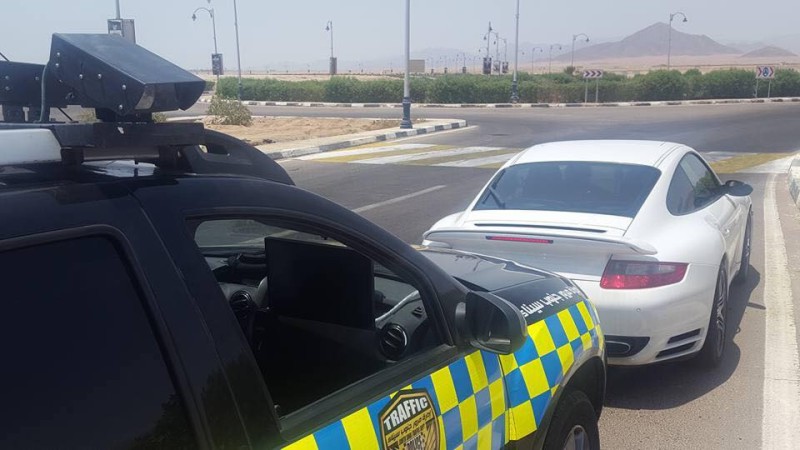
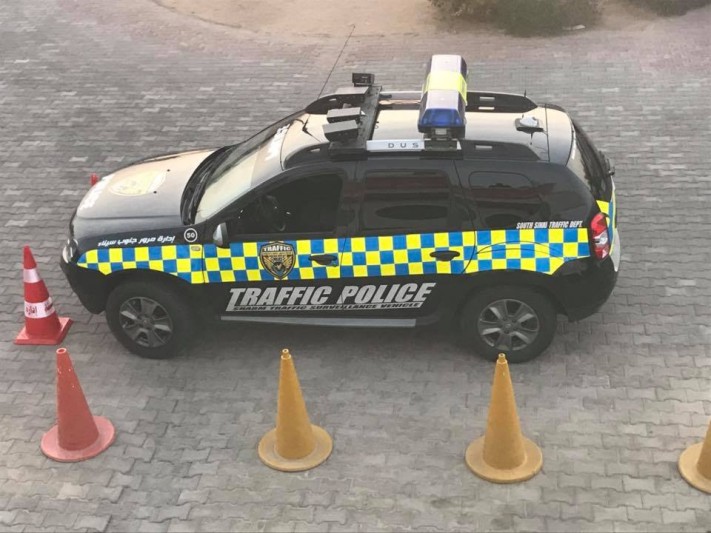
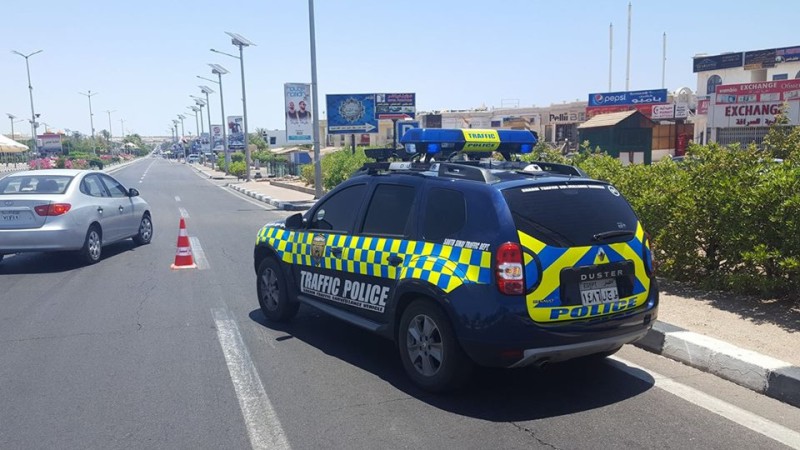
 Volvo Cars receives highest possible sustainability ...
Volvo Cars receives highest possible sustainability ... Nicolas Fuchs steers Borgward BX7 DKR to 3rd place at ...
Nicolas Fuchs steers Borgward BX7 DKR to 3rd place at ... VOLVO XC60 IS THE NEW 2018 WORLD CAR OF THE YEAR
VOLVO XC60 IS THE NEW 2018 WORLD CAR OF THE YEAR Jaguar Middle East launches F-PACE 2.0 WITH NEW 250PS ...
Jaguar Middle East launches F-PACE 2.0 WITH NEW 250PS ... Egypt-Exclusive: First Drive of Volvo XC60 – Is it ...
Egypt-Exclusive: First Drive of Volvo XC60 – Is it ... FIA OFFICIAL STATEMENT FOLLOWING THE 2017 AZERBAIJAN F1 ...
FIA OFFICIAL STATEMENT FOLLOWING THE 2017 AZERBAIJAN F1 ... Volvo Cars safety experts receive prestigious award ...
Volvo Cars safety experts receive prestigious award ... Geneva Show 2017: All-new Volvo XC60 SUV will ...
Geneva Show 2017: All-new Volvo XC60 SUV will ... Formula E 2017 season: Renault e.dams win opening race ...
Formula E 2017 season: Renault e.dams win opening race ... XC90 and 90 series help Volvo Cars report impressive ...
XC90 and 90 series help Volvo Cars report impressive ...